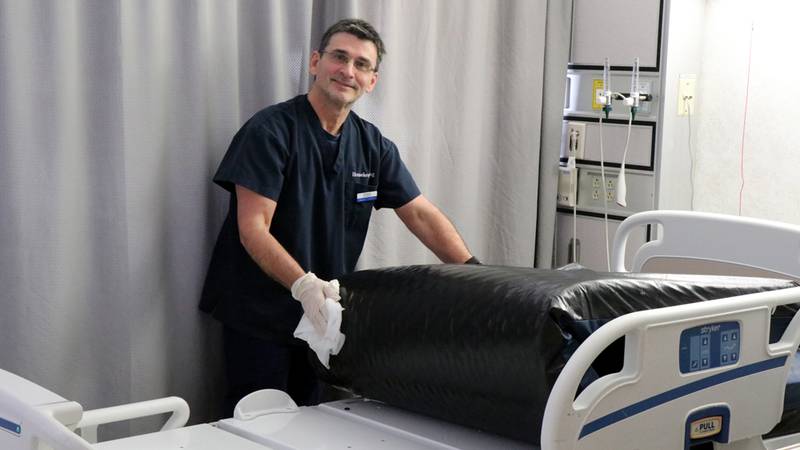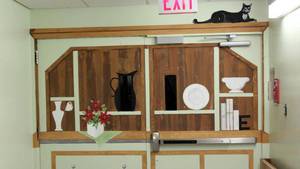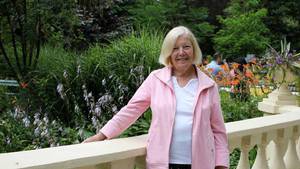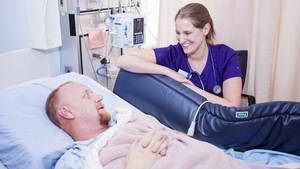An untucked bedsheet, an empty towel dispenser and full garbage may sound inconsequential to the overall operations of the 10 buildings of the QEII Health Sciences Centre, but the truth is, these everyday tasks are a crucial part of the system.
For Shane Earle and his 200 colleagues on the housekeeping team, the details matter.
“It’s everything,” Shane says. “As soon as they walk through the front door our patients are scanning, looking to make sure everything is clean. A bathroom and space that is clean shows that we care about them, so I think that plays a crucial role.”
The happiness and contentment of patients and their families is paramount to an organization that welcomes feedback and makes strides to respond to complaints and suggestions and continuously get better, says Tracey Prescott, the QEII’s assistant manager for environmental support services.
“We’re as open as we can be and we prefer it that way,” Tracey says. “It’s the appearance. If you’re coming into a room that looks well-made and well-attended and all the supplies are there, that gives some reassurances.”
Housekeeping staff are dedicated to patient units and are responsible for all aspects of cleaning and disinfecting anything and everything visitors and staff touch, including daily service of all patient rooms and bathrooms, as well post-discharge cleaning. Other team members focus on prepping operating rooms or keeping communal areas in order.
Shane, who spent most of his career in the hospitality industry, joined the QEII’s housekeeping crew in 2010 as a second income to support his daughter’s college education. Shane really enjoyed the role – he chose to stay and he quickly assumed a leadership role among staff. Today, his sustained enthusiasm and ability to look beyond his job description make him standout.
“He helps us with all our recruiting,” Tracey says, smiling.
Shane is an expert at his job and he says it all comes down to the details. He regularly befriends patients and, recently, bought a deck of cards and coloured pencils for a senior patient who felt isolated without family nearby. Shane asked her about her interests and began spending his lunch breaks playing cards at her bedside.
“While they’re here, it’s their home,” Shane says. “It’s a critical role in their mindset and how their day goes and I want to treat that home environment with the utmost respect I can.”
The warmth Shane exudes is a common thread among housekeeping staff, Tracey says, adding that stories of card games are not as infrequent as the general public may think.
“They do it out of pure joy and in recognizing that the patients are human just like us,” she says. “We get to know them, learn from them, treat them like family. That goes a long way.”
The housekeeping team is among the only staff who enter a patient’s room who don’t need to remind them they're unwell. No samples are needed, the conversation is light and there’s never a needle in sight. As a result, team members like Shane naturally strike up a conversation and in some instances, they become attached. It’s not uncommon for a unit team to host a celebration of life for a deceased patient who touched staff and in other cases, staff attend funerals or seek grief support services offered internally.
“I hope families know we do genuinely care,” Shane says. “We aim to provide comfort and it just comes naturally to us because, like that deck of cards, little things make a big impact on their day. I think it’s important and part of the culture that we try to provide.”
Fast facts about the housekeeping team
- They’re innovators — the team is constantly testing new products and equipment that can enhance cleaning to control and prevent outbreaks, along with new tools that could prevent sprain and strain injuries among staff.
- They’re collaborators — involved in renovations and new construction to provide feedback on materials used.
- They never stop learning — the team is trained on disease outbreak and crisis response, such as Ebola and SARS.








